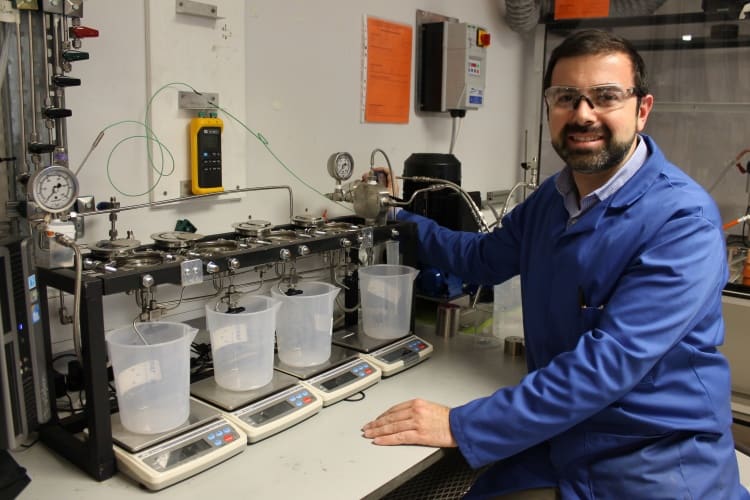
Professor Davide Mattia (Credit: Bath University)
Micropollutants – found in toxic chemicals such as drugs, hormones and pesticides – appear in wastewater in low concentrations, and can eventually work their way into the food chain via the soil, potentially causing long-term harm. The majority of water treatment plants in the UK do not have the ability to remove these chemicals, and impending legislation could necessitate significant investment from the industry.
A team led by Davide Mattia, Professor of Chemical Engineering at Bath University’s Centre for Advanced Separations Engineering (CASE) and Water Innovation & Research Centre, is working on a solution claimed to be both environmentally sound and cost-effective. A highly porous photocatalytic metal foam captures the micropollutants, which are then broken down into harmless organic compounds by sunlight. Unlike other photocatalytic methods, the nature of the foam prevents leaching of nanoparticulate material, keeping toxic compounds out of the food chain.
“I will be working with academic and industrial partners to retrofit existing water treatment plants to accommodate this new technology,” said Professor Mattia. “We hope this will result in a more effective way of removing micropollutants in water without increasing carbon emissions or producing toxic by-products.”
“I believe our anodic metal foams represent an innovative and practical solution that water companies will be able to integrate in their existing infrastructure without radical changes, thereby lowering the barriers to their adoption.”
Mattia will be supported through his work by an EPSRC Established Career Fellowship in Water Engineering, a research area that encompasses design and optimisation of technologies relating to water resource management, treatment and distribution systems.
“It is fantastic that Professor Mattia gets this opportunity for this exciting research for developing fundamentally new technology for organic micropollutant removal,” said Professor Jan Hofman, Director of the university’s Water Innovation & Research Centre.
“Removal of these compounds from drinking water and wastewater is extremely important for public health and aquatic life. The water sector has great need for innovations in this field, which Professor Mattia’s research can provide.”




Swiss geoengineering start-up targets methane removal
Several rather dubious statistics in this report. IF methane had 120× the thermal effect of CO2 that would be TWO orders of magnitude. Two is not...